Junior Walker & The All Stars
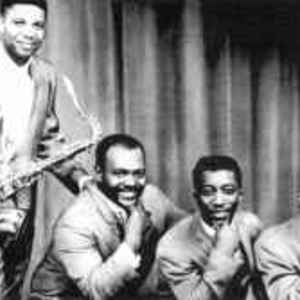
- Genre:
- R&B
Junior Walker (born Autry DeWalt, Jr., June 14, 1931 ? November 23, 1995) & the All Stars were signed to the Motown label in the 1960s, and became one of the label's signature acts. Junior Walker was born Autry DeWalt Jr. in Blytheville, Arkansas in 1942. Some accounts list his birth name as Oscar G. Mixon, and say his name was changed at some point during his early childhood. He grew up in South Bend, Indiana where he became a proficient saxophone player, studying the methods of some of the prominent sax players of the time.
Junior Walker was born Autry DeWalt Jr. in Blytheville, Arkansas in 1942. Some accounts list his birth name as Oscar G. Mixon, and say his name was changed at some point during his early childhood. He grew up in South Bend, Indiana where he became a proficient saxophone player, studying the methods of some of the prominent sax players of the time. During his teens, DeWalt joined a group called the Jumping Jacks and began to perform in local clubs, calling himself Junior Walker.
He next joined a trio led by drummer Billy "Stix" Nicks, which also featured organist Fred Patton. They soon added backing vocalist and guitarist Willie Woods, and played around northern Indiana and southern Michigan. Walker took over the group after Nicks joined the Army and in the late '50s, relocated to Battle Creek, MI, and formed a band billed as Junior Walker & the All-Stars. Initially, they featured Patton, Woods, and drummer Tony Washington. Patton was later replaced by Victor Thomas, and Washington by Jack Douglas and, finally, James Graves. The All-Stars continued to play around the area, and took up a residency in Battle Creek's El Grotto club.
It was at the El Grotto that they were noticed by Johnny Bristol, who recommended them to Harvey Fuqua, who had sang with Harvey and the Moonglows. By this time, Fuqua was running his own fledgling record label called simply "Harvey". Fuqua liked what he heard and signed Junior Walker and the All Stars in 1962.
The Harvey label was soon bought out by Motown, and the group found itself recording with Soul Records. Soul was a subsidiary of Motown and all of the group's subsequent hits in the US were released on the Soul label, although they had some Tamla/Motown hits on the charts in the UK.
In early 1965, the band scored their first big hit with a dance tune that Walker had written called "Shotgun", which marked Junior's vocal debut. In fact, the only reason he sang the song was that the vocalist he'd hired didn't show up for the session, and he was somewhat flabbergasted by the label's decision to leave his vocal intact. Berry Gordy's instincts proved right, however, when "Shotgun" topped the R&B charts and hit number four on the Pop chart.
In 1966, Graves left and was replaced by old friend Billy "Stix" Nicks. Walker's hits continued with tunes like "I'm a Road Runner" (#20 Pop) and "Pucker Up Buttercup". (#3 Pop) Toward the end of the '60s, seeking to diversify their approach, the All-Stars began recording more ballad material, complete with string arrangements and Walker vocals. That approach resulted in the group's second Top Five pop hit, the R&B number one "What Does It Take (To Win Your Love)" which helped refuel Walker's career. He landed several more R&B Top Ten hits over the next few years, including a cover of The Guess Who's "These Eyes", which went to number 16 on the Pop chart. Musical tastes changed in the 70's and the final top forty hit for Junior Walker and the All Stars was "Do You See My Love (For You Growing)" in 1970.
Walker resurfaced as a solo artist during the disco era, working with producer Brian Holland beginning in 1976 with the single "Hot Shot". A pair of albums followed. In 1979, Walker joined up with another former Motown mainstay, signing with producer Norman Whitfield's Whitfield label, though without much success.
Walker returned to the spotlight in 1981 with a guest solo on Foreigner's Top Five hit "Urgent". Two years later, he re-signed with Motown and recorded "Blow the House Down". His melodic style was now being absorbed into a new generation of R&B-flavoured jazz instrumentalists.
Junior continued to perform in the 80's and 90's, often with his son Autry DeWalt III on drums. Sadly, Junior Walker developed cancer in 1993 and as his health deteriorated, he had difficulty walking. He died on November 23, 1995 in Battle Creek, Michigan at age 53.
In the wake of his death, Billy "Stix" Nicks continued to tour with a version of the All-Stars.
http://www.classicbands.com/jrwalker.html
- Sort by
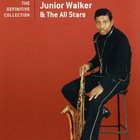
The Definitive Collection
- Year:
- 2008
- Tracks:
- 18
- Bitrate:
- 320 kbps
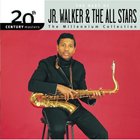
The Best Of Jr. Walker & The All Stars
- Year:
- 2000
- Tracks:
- 11
- Bitrate:
- 320 kbps
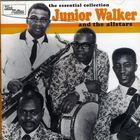
The Essential Collection - Junoir Walker And The Allstars
- Year:
- 1999
- Tracks:
- 18
- Bitrate:
- 249 kbps

The Ultimate Collection
- Year:
- 1997
- Tracks:
- 25
- Bitrate:
- 192 kbps
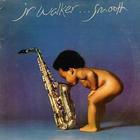
Smooth (Vinyl)
- Year:
- 1978
- Tracks:
- 10
- Bitrate:
- 288 kbps
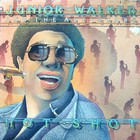
Hot Shot (Vinyl)
- Year:
- 1976
- Tracks:
- 9
- Bitrate:
- 192 kbps
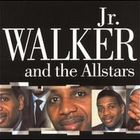
Jr. Walker & The All Stars (Vinyl)
- Year:
- 1974
- Tracks:
- 18
- Bitrate:
- 192 kbps
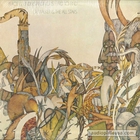
Peace & Understanding Is Hard To Find (Vinyl)
- Year:
- 1973
- Tracks:
- 11
- Bitrate:
- 224 kbps
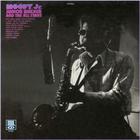
Moody Jr. (Vinyl)
- Year:
- 1971
- Tracks:
- 10
- Bitrate:
- 128 kbps
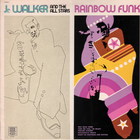
Rainbow Funk (Soul)
- Year:
- 1971
- Tracks:
- 9
- Bitrate:
- 320 kbps
 Big Joe Turner
Big Joe Turner  Bo Diddley
Bo Diddley  Count Basie
Count Basie  Illi
Illi  Louis Jordan
Louis Jordan  Roy Brown
Roy Brown